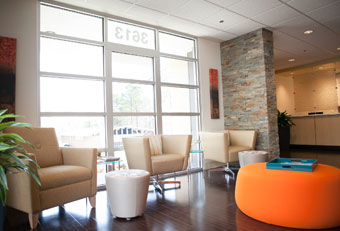Interview with Dr. Charles Monteith
Tubal Reversal Surgeon at Chapel Hill Tubal Reversal Center
Charles Monteith, M.D. speaks about his education, training, and certifications. Dr. Monteith says he currently performs tubal reversals eight to twelve a week and the reasons women mention for wanting to have their tubes reversed. He says these include a new partner, or people have just changed their minds and decide they want to have more children. He adds a lot of women have experienced changes in their bodily functions after tubal ligation, and that patients refer to this as Post Tubal Ligation Syndrome.
Transcript of Video Interview With Dr. Monteith
Interviewer: Can you tell us about your medical school and residency training?
Dr. Monteith: I went to medical school in San Francisco, University of California in San Francisco and finished my MD degree there and then subsequently returned to the University of North Carolina, Chapel Hill to do my obstetrics and gynecology residency.
Interviewer: How long have you been performing reproductive surgery?
Dr. Monteith:I have been performing Gyn. surgery since 1997 but as of a year and a half ago dedicated myself exclusively to working with Dr. Berger and doing tubal reversal surgery.
Interviewer: And before you started working with Dr. Berger did women frequently ask for tubal reversal procedures was that something that something that came in your practice prior?
Dr. Monteith: As a generalist I did not see a lot of women that requested tubal surgery. However, our practice was a majority of young pregnant women. So I didn’t get a fair assessment of how many women were out there that wanted to have tubal ligations reversed. However I did have a partner that did perform exclusive GYN services she fairly often had requests or inquiries about tubal reversal surgery.
Interviewer: What made you pursue a certification in tubal reversal?
Dr. Monteith: I think I had had practiced high risk obstetrics and gynecology for a good seven years after I finished my residency and just one day I realized I needed to change what I was doing or I wasn’t going to last very long doing it. The way medicine has become is very high volume very stressful and little time with patients. I felt like I really wasn’t helping people to the best of my ability. Patients would come they would go. They would their insurance and have to go find another provider. People would come with job movement in the middle of pregnancy or leave in the middle of pregnancy and I just found that I didn’t get a lot of personal fulfillment out of it. I especially like my role as a tubal reversal provider because I like I’m being with a physician is supposed to be. I’m using my skills to help people to the best of my ability. And I especially feel because it’s not a widely offered service that I’m doing even better for a lot of women.
Interviewer: How many reversals do you perform each week?
Dr. Monteith: On average about eight to twelve a week currently.
Interviewer: What are some of the reasons women mention for wanting to have their tubes reversed?
Dr. Monteith: It seems like the most common reason is basically none of us can predict the future and most commonly it seems women find themselves in new relationships. Usually it is bad marriages, separations and divorce. And they find themselves with a new partner and just very strongly they would like to have children together. A close second to that would be to people that have just changed their minds and decide they want to have more children. And then a lot of women have experienced changes in their bodily functions after tubal ligation.
Interviewer: Are you referring to Post Tubal Ligation Syndrome?
Dr. Monteith- Ah yes, what most patients refer to as Post Tubal Ligation Syndrome.
Interviewer: And how frequently do you hear that as a condition that women feel they have developed?
Dr. Monteith- We hear it very commonly. There are probably a lot of women who come through here that never voice it or share it. But, at least in my experience here, I see a patient at least once a day if not every other day that has experienced worsened menstrual symptoms or bodily functions after a tubal ligation procedure.
Interviewer: And how much follow-up or are you able to follow-up after the surgery to see if that has improved?
Dr. Monteith: I am in the process of doing that now. Last year, we did a small case study on five women that had tubal ligations and experienced Post Tubal Ligation Syndrome. This summer it will be a full year and thus far in talking with them it seems at least about 70% of them have gotten better. Very frequently I am amazed that women post on the message board how much improvement they feel after they have reversal surgery.
Interviewer: How much contact do you have with patients after their reversal surgery?
Dr. Monteith: Most patients come from long distances so there is not a lot of direct contact but the most amazing thing is our tubal reversal patients seem to keep close contact by email and through electronic means. So, we hear from a large number of our patients.
Interviewer: What’s the best part of tubal reversal surgery and what you’re doing currently?
Dr. Monteith: The best part is really just using my skills to help a woman, a couple or a family to achieve what they would otherwise not be able to achieve and that is to add more children to their family or their relationship. Or to improve their perceptions about their body.
Interviewer: What do you like about Chapel Hill Tubal Reversal Center?
Dr. Monteith: The thing I like the most about this center and I come from my experience of working a large university and also from working at a large good quality hospital in Raleigh is that this center works with amazing efficiency. We take great care of patients. The staff seems to be real happy and motivated. And we are all dedicated to doing just one thing and that’s tubal surgery. And it feels good to work in a place with such high efficiency for the betterment of patients.
Interviewer: How does Chapel Hill compare to the in patient care of a hospital?
Dr. Monteith: There about the same as some of the best hospitals I have worked at and probably even better. Mainly because we are all focused on one thing and the staff really knows their jobs. And we are all dedicated to making that one goal happen, and that’s safe outpatient tubal repair surgery.
More Information about Dr. Monteith








